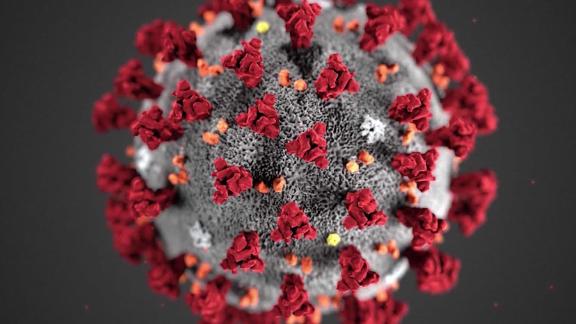Researchers confirm 1st case of man contracting Covid-19 twice

A 33-year-old man living in Hong Kong had Covid-19 twice this year, according to preliminary research out of China.
The pre-print study — which the University of Hong Kong said on Monday has been accepted to publish in the journal Clinical Infectious Diseases — found that the man’s second case of Covid-19 occurred 142 days after the first.
The study also noted that in the first case, the man showed symptoms but in the second case he was asymptomatic, in that he did not show any noticeable symptoms.
During his first episode of illness, the patient had a cough, sore throat, fever and headache for three days, according to the study. He tested positive for Covid-19, the disease caused by the novel coronavirus SARS-CoV-2, on March 26.
Then during his second episode, the patient was returning to Hong Kong from traveling in Spain via the United Kingdom, and he tested positive during his entry screening at the Hong Kong airport on August 15, according to the study. The man was then hospitalized again but remained asymptomatic.
For the study, researchers at the University of Hong Kong and various hospitals in Hong Kong analyzed specimens collected from the patient 10 days after his symptoms emerged in the first episode and then one day after hospitalization for the second episode. They analyzed genetic material in those specimens.
The genetic analysis showed that the first infection was from a strain of the coronavirus most closely related to strains from the United States or England, which were collected in the spring, and the second was most closely related to strains from Switzerland and England, which were collected in July and August.
“This case illustrates that re-infection can occur even just after a few months of recovery from the first infection. Our findings suggest that SARS-CoV-2 may persist in humans as is the case for other common-cold associated human coronaviruses, even if patients have acquired immunity via natural infection or via vaccination,” the researchers wrote in their study.
“In summary, reinfection is possible 4.5 months after a first episode of symptomatic infection. Vaccination should also be considered for persons with known history of COVID-19,” they wrote. “Patients with previous COVID-19 infection should also comply with epidemiological control measures such as universal masking and social distancing.”
Some context: The researchers called this the “first case” of re-infection of Covid-19 in their paper, but other experts are calling for more research before naming this case truly the world’s first.
“What I think is really important is that we put this into context,” said Maria Van Kerkhove, the World Health Organization's technical lead for coronavirus response and head of the emerging diseases and zoonoses unit, during a media briefing in Geneva on Monday.
“There’s been more than 24 million cases reported to date. And we need to look at something like this on a population level. And so it's very important that we document this and that, in countries that can do this if sequencing can be done that would be very, very helpful. But we need to not jump to any conclusions,” Van Kerkhove said. “Even if this is the first documented case of reinfection, it is possible of course because with our experience with other human coronaviruses, and the MERS coronavirus and the SARS-CoV-1 coronavirus, we know that people have an antibody response for some time but it may wane.”
